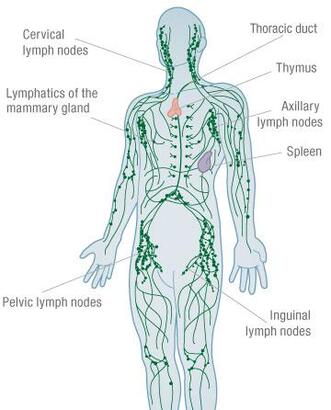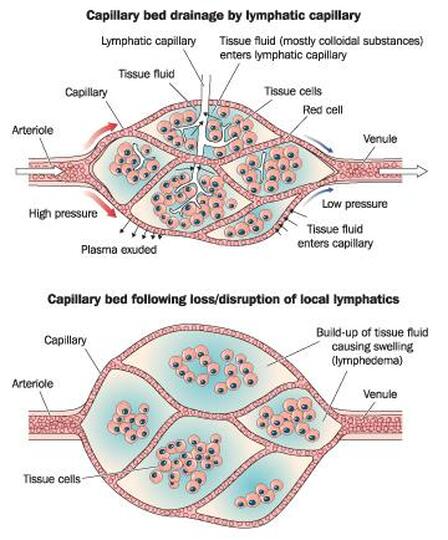Lymphatic SystemTo better understand the disease process we have to start with where it all begins—the lymphatic system. The lymphatic system is responsible for the production, transport and filtration of lymph fluid throughout the body. In addition to its important circulatory functions, the lymphatic system also has important immunological functions (defense against infections, allergy, cancer and others).
The lymphatic system primarily consists of lymphatic vessels, which are similar to veins and capillaries of the circulatory system. The vessels are connected to lymph nodes, where the lymph is filtered. The tonsils, adenoids, spleen and thymus are all part of the lymphatic system. On its way into the circulatory system, lymph passes through lymph nodes, which are stationed throughout the body. While the axilla and inguinal areas are the most well-known for lymph nodes, the head and neck also contain a large quantity, as do the intestines. |
Three main functions of the lymphatic system:
|




